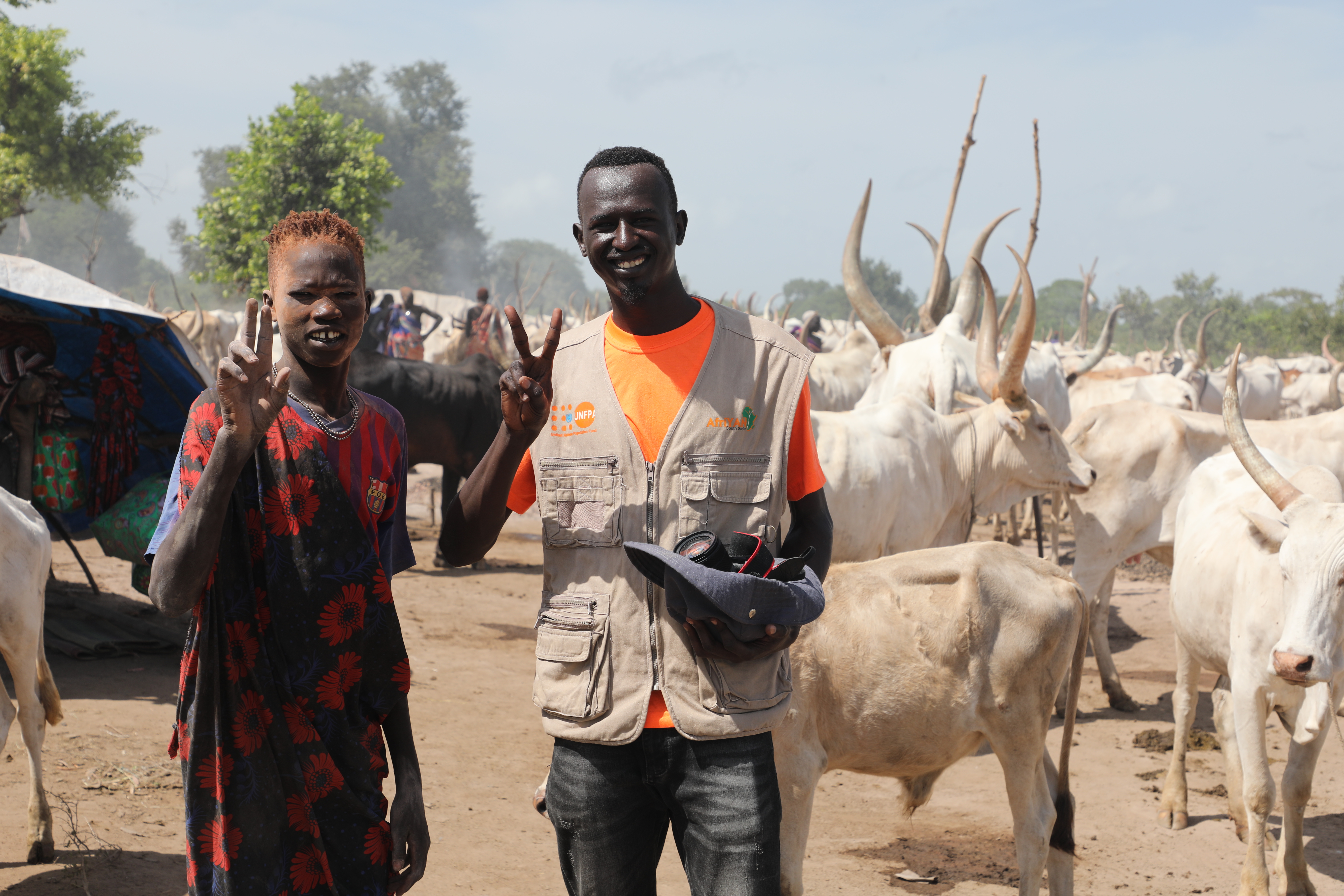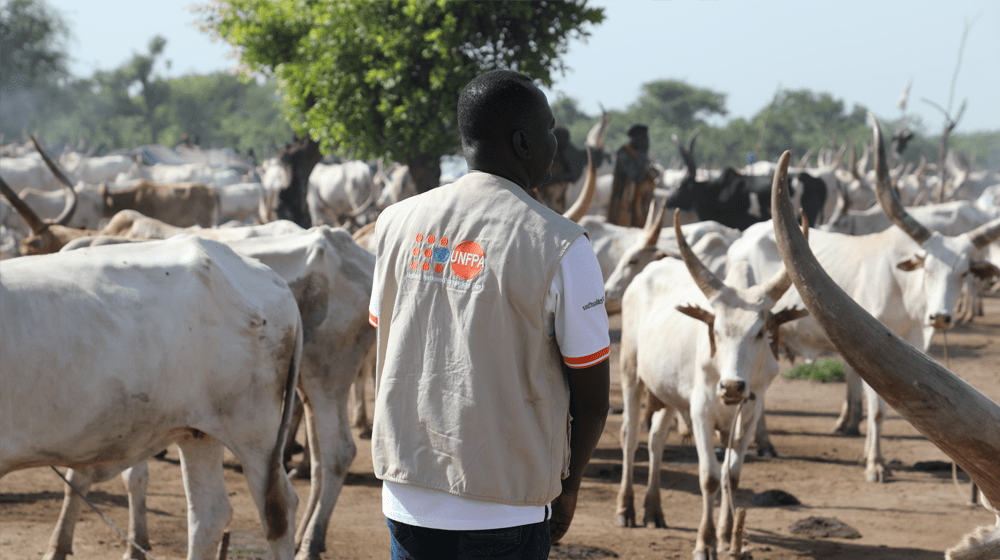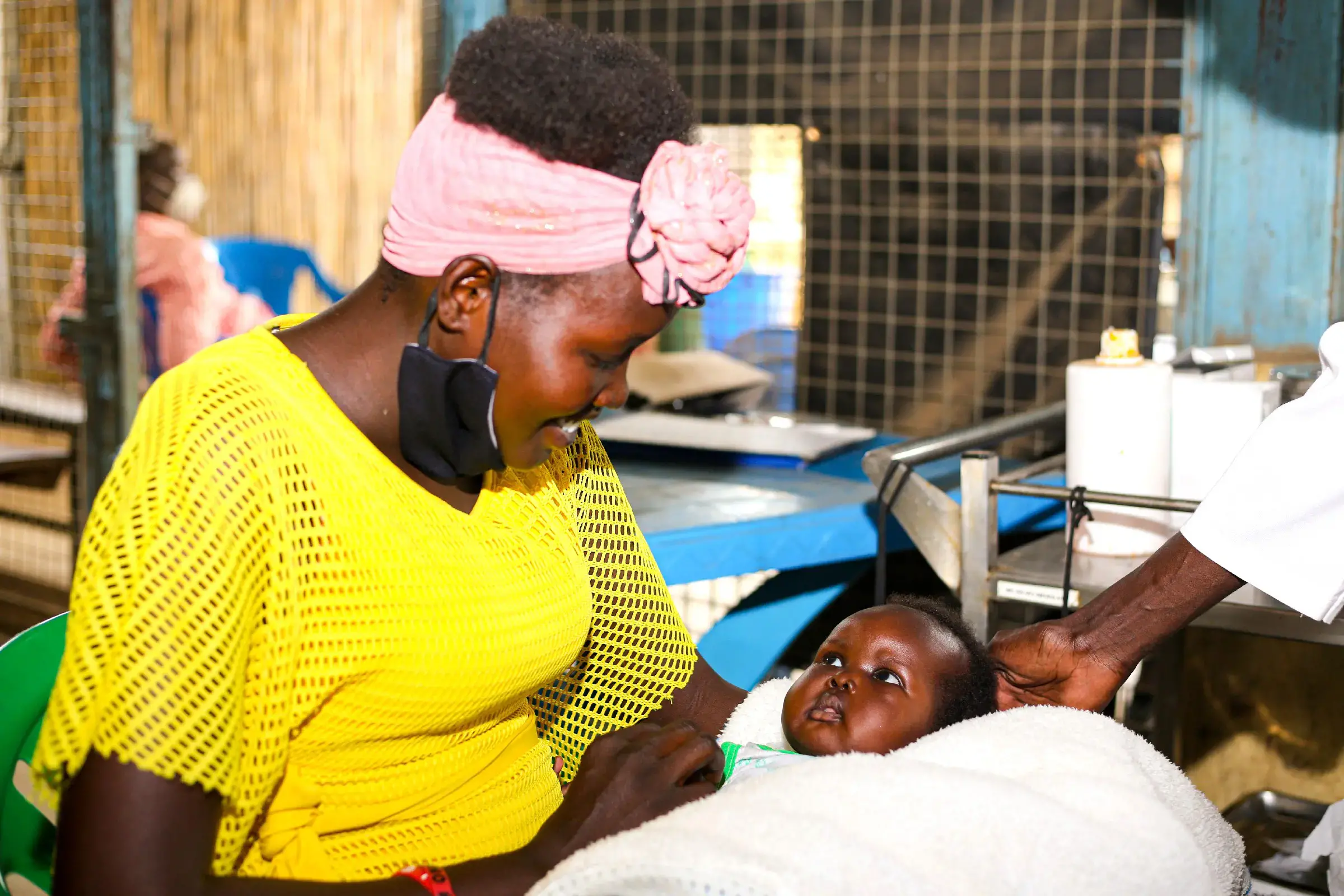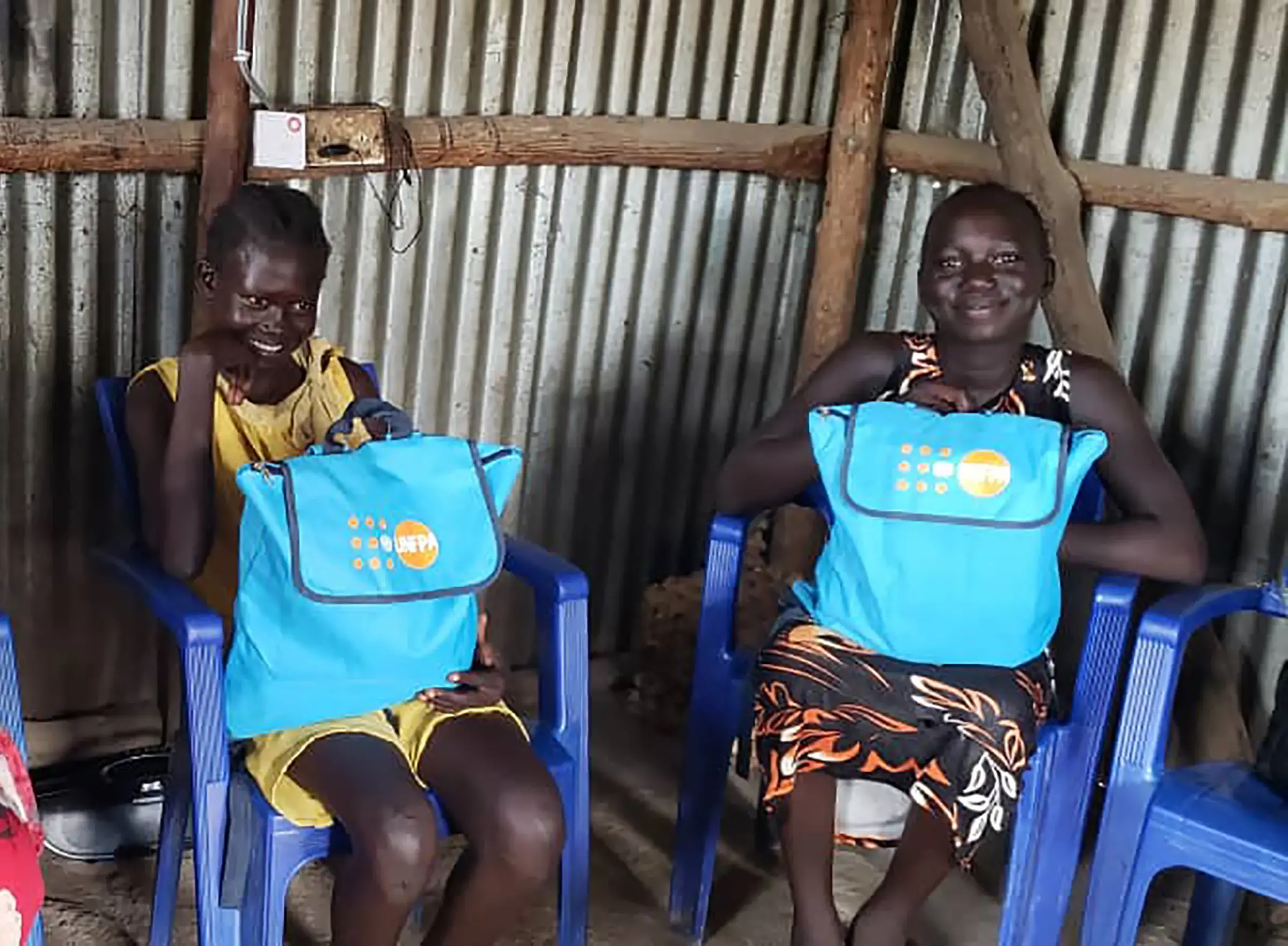Internal conflicts, displacements, and cultural discriminatory practices affect women and young girls to exercise their rights and hinder their access to sexual and reproductive health information.
Together with partner Shabab le Shabab, UNFPA identified a unique set-up of cattle camps to promote SRH to ensure the services and information reach the last mile. The cattle Camp project is an innovative project which seeks to reach youth and teenage Girls with an integrated Peacebuilding, Sexual Reproductive Health and rights, prevent gender-based violence, enable peaceful co-existence, break the silence of menstrual health, and mental health among youths and other community members in seven cattle Camps in Terekaka County of Central Equatoria State in South Sudan.
The area occasionally experiences conflicts among cattle keepers and pastoralists value their livestock more than anything even their own lives which leave women and girls with limited space to basics of human rights and exposes them to too many challenges of GBV, harmful practices, and limited access to important services such as health, education, security, among others.
In the cattle camp, young girls are married at a very early age literally out of their consent because it is culture. Access to education particularly girls is not in any one’s dreams, menstrual hygiene is strongly attached to traditional practices as women are isolated during their menstruation with no sanitary pads. Using sanitary pads is considered to cause barrenness or infertility.
With no health centre within, the community relays on traditional herbs. Childbirth and maternal health are not proper with no medical attendance which accounts to reasons for health-related issues such as fistula and maternal deaths.
A team from Shabab Le Shabab Health Alliance camped for fourteen days within the cattle camps to run the difference sessions including men on positive masculinity on peace-building and SRHR.
UNFPA launched a campaign with partners of Shabab Le Shabab to raise awareness of pastoralists in Terekeka cattle camps. UNFPA support in peacebuilding initiatives with cattle camps with an objective to enhance menstrual health hygiene, prevention of gender-based violence, and mental health and community resilience.
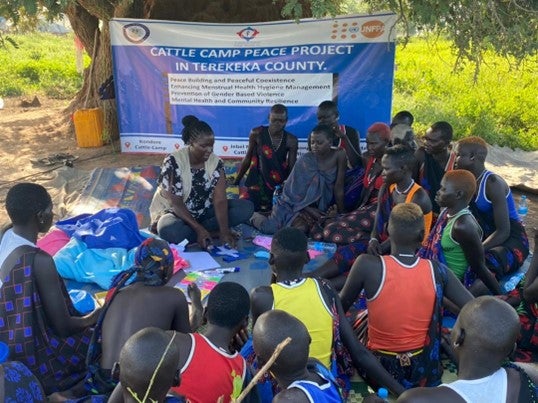
“Peace is fundamental in delivering programs for the population and development. As we launch the cattle camp peace project, we all have collective responsibility in actively working to build, deepen, and maintain peace while ensuring both men and women thrive, and the potential of young people is fulfilled” said Dr. Ademola Olajide,
UNFPA Representative.
Over 500 people in attendance of the launch, the chairperson of Youth Union Terekaka County, cautioned the youth of the cattle camps against violence “resolve issues peacefully” as he emphasised on the importance of behaviour change.
With UNFPA support to local partners, a big shift of mindset particularly isolation of young girls during their menstruation to acceptance to use re-usable local clothes to cover themselves during their menstruation period has been gradually achieved.
During the fourteen days of camping in the cattle camps, teenage girls and young women sessions covered training on basic skills on making re-usual pads using local materials, sensitization on menstrual health hygiene and management, and preventions of other STIs among young girls. An interactive open discussion which helped to break the silence, fears and stigma around menstruations and STIs.
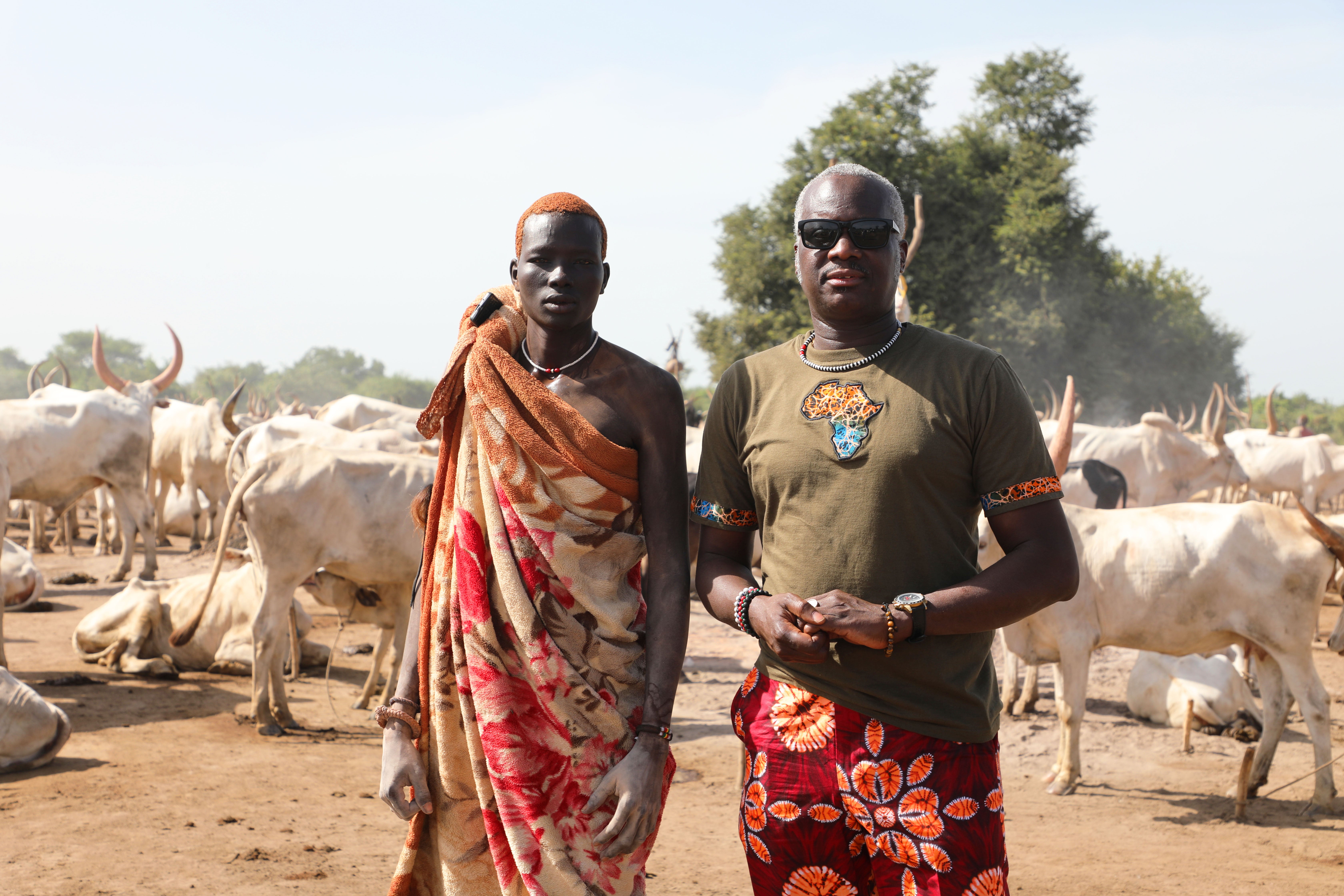
Other interactive sessions on different GBV issues conducted separately for women and men as their culture demands which allows women open up about GBV issues affecting them. It is worth noting that men acknowledge the GBV issues within the cattle camps as they are root causes. Peacebuilding sessions are exclusively done with youth and elders with the cattle camp.
“Behavior change and shift of the mindset doesn’t happen in a day. UNFPA commits to continue working and supporting communities beyond cattle camps across South Sudan to ensure that SRH services and information is accessible to communities for the women and girls to have a decent life” said Dr. Ademola Olajide, UNFPA Representative
